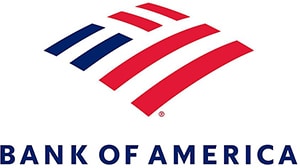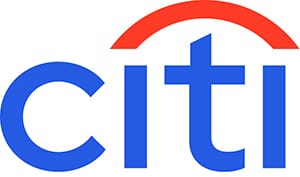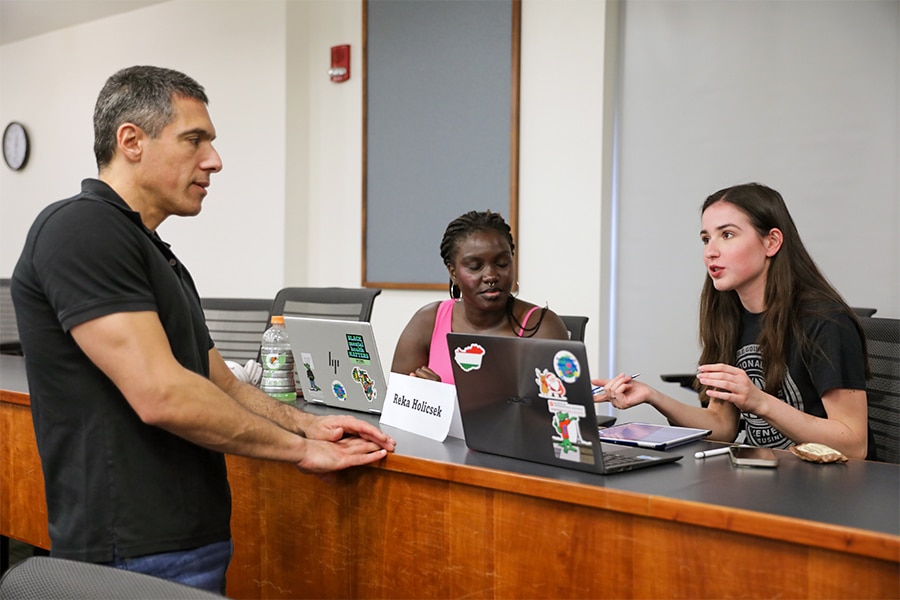BSBA in Finance program
Program length
- 120 credits
- Full time: 4 years
Schedule format
- On campus
- Semester schedule
- In-person, online and hybrid courses
Why major in finance at Warrington?
In today’s fast-paced, data-driven business world, understanding finance isn’t just helpful — it’s essential. Whether you’re launching a startup, joining a Fortune 500 company, or managing investment portfolios, a strong foundation in financial concepts is key to making smarter, more strategic decisions.
The Warrington College of Business Bachelor’s of Sciences in Business Administration – Finance program empowers you with the tools and insights to evaluate the potential of new business opportunities, secure and manage capital, understand the returns investors expect, value stocks and investments, and minimize risk while maximizing returns.
But this program isn’t just about theory. It’s about experience. As a finance major at Warrington, you’ll dive deep into the logic behind high-stakes decisions — and master the same tools used by top industry professionals to analyze trends, forecast performance, and drive results.
Your experience goes beyond the classroom. Here, you’ll challenge yourself to think bigger, move faster, and aim higher through immersive, hands-on opportunities.
You’ll manage real investment portfolios, compete in stock pitch competitions, collaborate with top employers during national site visits, network with successful finance professionals and Warrington alumni, and solve real-world problems in case competitions.
Surrounded by innovative thinkers, experienced faculty, and driven peers, you’ll build the knowledge, confidence, and connections to lead in any financial setting.
Ready to get started?
Make your next move and discover more about Warrington and our finance major.
BSBA in Finance facts and figures
Seeking a solid investment? Look right here.
1,754
Students enrolled in the finance major.
#11
Among U.S. Publics and #29 in the nation for undergraduate finance programs.
U.S. News & World Report, 2026 Best Undergraduate Business Programs
#14
Among U.S. Publics and #24 in the nation.
U.S. News & World Report, 2026 Best Undergraduate Business Programs

Data and AI
What’s the secret to a portfolio that performs? Hint: It’s not extensive historical research but the power of data. Finance majors learn its languages beforehand, using predictive analytics, AI, and machine learning to recommend the optimal combination of stocks and bonds.
What do finance majors do at Warrington?
Careers are a lot like investments. Strong, early potential can give way to surging (and unstoppable) gains. Here’s a forecast for your future:
- Business core: Students take foundation courses in economics, mathematics, computing skills, and accounting; core courses that relate to the basic functions of a business, such as finance, management, marketing, and operations management.
- Major courses: How do finance professionals make decisions? What governs the industry’s institutions and markets? This comprehensive overview introduces you to financial management and acquisition, securities analysis and valuation, interest rates, risk management, trading, forecasting, capital structure and related policies.
- Electives and minors: Where will you make the most gains? Focus your growing finance knowledge toward real estate, wealth management or another industry-related discipline. Explore all minors and certificates.
Explore the Professional Selling Minor. - Career readiness requirement: Explore careers in business, develop key competencies valued by employers, graduate with real world experience, and develop leadership tools to get you ready for your career.
- Continue onto a master’s in finance: When your grades are trending upward, Warrington’s combination bachelor’s-to-master’s program accelerates your career for even greater returns. Learn more about the MS in Finance. The MS in FinTech also offers graduates an additional pathway to success.
Scholarships
Warrington awards scholarships to undergraduates each year.
These one-time, term-based awards range from $500 to $2,000. For consideration, interested students are advised to submit their Free Application for Federal Student Aid (FAFSA®) and Warrington’s undergraduate scholarship application.
Types of awards include:
- Merit- and need-based awards: Stay focused on your next major goal with a scholarship that recognizes all you’ve achieved so far.
- Florida Bright Futures: High high school grades can result in lower costs — including a scholarship that covers 100% of all tuition and fees. Review levels for this award, eligibility requirements, and how to apply.
- Region-specific awards: Live in Tampa, Palm Beach, Polk County, or another Florida region? You may be eligible for a scholarship that offsets the cost of tuition or study abroad expenses.
- Study abroad awards: About half of Warrington undergraduates complete a study abroad experience before they graduate. For many students, scholarships that partially cover tuition or living expenses make these trips possible.
Craft your success story here
Rising paths point toward successful markets and intriguing stories.
As you learn to design portfolios, build budgets and analyze financial statements, we give you the tools and experiences to create a high-returns career:
- Business-ready competencies: Our employer partners tell us the ideal job candidate is a leader, a collaborator and tech-savvy. And we ensure you graduate with this well-rounded profile. Learn more about our approach.
- Leadership development: Professional Development: Explore the different areas of industry within finance and specialize to enhance behavioral and technical skills. Learn more about leadership development.
- Mentorship: Success is cyclical here. Your peers will show you all Warrington has to offer — and later, you’ll do the same for incoming students. Explore mentorship at Warrington.
- Internships: Model, analyze, and expand your résumé one experience at a time by completing at least one internship before you graduate. Learn more about internships.
- Study abroad: Study and see for yourself how international markets work in these semester-long trips that can be combined with an internship. Explore study abroad programs.
- Career guidance: We’ll take you step by step to your first post-graduate position. Along the way, you’ll try out potential careers and make key connections. Learn more about our top-ranked approach to career development.
- Flexibility: For undergraduates like you, the option to attend classes in person or online opens your schedule up for interviews, internships and more experience-building opportunities.
Admission requirements
Structure your future for success as a finance major at Warrington. Learn more about the admissions process, or review requirements based on how you’ll apply:
Incoming freshmen: Apply directly to UF, starting with the undergraduate application and selecting finance as your major. Review requirements and apply.
Innovation Academy: Spend the spring and summer semesters studying finance and earning an Innovation Minor. Then, use your fall to personalize your studies — perhaps with an internship or study abroad trip. Learn more about Innovation Academy before you apply.
Transfer to UF: Arriving with some college credits or a completed associate degree? If you previously studied finance or a related discipline, Warrington will evaluate your application to give you the go-ahead for our BSBA program. Learn more about transferring to UF.
Change your major: Still searching for the right fit? As long as your requirements are on track, switch your major to finance to pursue a career in managing funds, investments, and risks. Learn more about changing your major.
Combination degrees: Take master’s-level classes while fulfilling bachelor’s requirements, fast-tracking your career and saving money long term. Explore all combination degree programs.
Dual degrees: Interested in earning a BSBA in Finance plus another major at the University of Florida? Understand who’s eligible to pursue a dual-degree pathway and how to apply, whether you’re a business student expanding your horizons or a UF undergraduate curious about Warrington’s offerings.
Finance Professional Development
Dive in head first — the Finance Professional Development program, the first of its kind, offers an inside look at careers in finance. Explore banking, wealth management, corporate finance and other areas critical to the field. Guided by expert staff, alumni and corporate partners, you’ll receive industry-specific training, explore jobs, visit companies and network.
Experiential learning programs

The Founders Fund
The Founders Fund is a student-managed finance organization at the University of Florida. It fosters financial expertise and professional growth. Learn investment and portfolio management, receive hands-on experiential learning opportunities, and achieve superior returns relative to key benchmarks. With a long standing commitment to excellence, earn your place in prestigious firms, with the skills and experience to excel in a competitive financial industry.

Gator Student Investment Fund
Picturing a career on Wall Street? Join the students managing and investing in a fund of $1.4 million AUM, which supports the Machen Florida Opportunity Scholarship.

Caimanes Student Managed Equity Hedge Fund
Use your emerging financial analysis skills to source long- and short-term investments and defend your choices, all while learning about portfolio and risk management techniques. Funds support scholarships for first-generation students.
Courses
Explore the ins and outs of investments, what makes a bear or bull market, and optimal strategies for growing and allocating funds.
In addition to general studies, here are the business classes finance majors are required to take:
Core courses
The Legal Environment of Business
Introduces the legal environment of business and emphasizes the social, political and ethical aspects of legal issues in business.
Business Finance
Students will understand the role of finance within a firm, society and an economic system.
International Business
Students will understand how components impact business decision-making in countries worldwide.
Principles of Management
A broad overview of management that will help you become a better manager and better team member.
Principles of Marketing
Students will understand the role of marketing within society and an economic system.
Operations and Supply Chain Management
Introduces the concepts of operations management and supply chain management.
Statistics for Business Decisions
Covers correlation and linear regression, model building, multiple regression and more that impact business decisions.
Foundations of Business Analytics and Artificial Intelligence
Introduces the basics of data analytics and machine learning using Python.
Financial Accounting and Reporting 1
Apply economic reasoning, accounting concepts, and generally accepted accounting principles to solve problems.
Financial Accounting and Reporting 2
Learn about financial accounting standards and rules to record complex transactions.
Financial Management
An examination of theory and practice of managerial finance, financing and investing decisions.
Financial Modeling
Learn how to apply modeling techniques to financial problems.
Equity and Capital Markets
Learn about financial markets, including equity funds, the mechanics of stock prices and more.
Electives
Business Data Communications
Examines various telecommunication systems, the use of local and wide area networks, and wireless technologies.
Business Processes and Accounting Information System
This course provides an examination of the accounting information systems in a business organization.
Business Systems 1
Introduces the basic tools for building business systems using object-oriented and event-driven programming paradigms.
Business Systems 2
Continues developing the basic tools for building business systems using object-oriented and event-driven programming paradigms.
Business Systems Design and Applications
Conceptual foundations of the process, data and object-oriented approaches for business systems.
Computing in the Business Environment
Presents fundamental concepts from the perspectives of the business computer user and the corporate business computing environment.
Consumer Behavior
Emphasizes both descriptive and conceptual analysis of consumer behavior.
Cost and Managerial Accounting
Applying economic principles and analytic skills to provide financial data for a management control system.
Creativity and Innovation in the Business Environment
Examination of the creative process and organizational environment of several innovative organizations.
Database Management
Introductory course on database management covering stages in a database development process.
Debt and Money Markets
Covering financial markets, as well as institutions and instruments associated with debt funds.
Digital Marketing
Students learn how to use Python programming to analyze data and develop digital marketing solutions.
Effective Career Management
Based on the cognitive information processing theory for career problem-solving and decision-making.
Estate and Tax Planning
Learn the fundamentals of estate planning through trusts, guardianships and post-mortem planning.
Ethics in Global Business
Explores issues promoting profitable but responsible commerce and socially beneficial business activity.
Financial Plan Development
Covers retirement needs, individual, corporate, and government retirement plans, plus group benefits plans.
Human Resource Management
Covers human resource areas such as employment planning, employment regulation, job analysis and others.
Information Systems and Operations Strategy
Policy and management issues surrounding information systems and operations management in today’s enterprises.
Integrated Product and Process Design 1
Engineering and business students partner with industry sponsors to create authentic products and processes.
Integrated Product and Process Design 2
Continuation of the two-course sequence where engineering and business students partner with industry sponsors.
Introduction to Financial Planning and Wealth Management
An examination of the financial planning process, professional conduct and regulation, and education planning.
Introduction to Retailing Systems and Management
This course focuses on functions, institutions and activities of retailing goods and services.
Introduction to Social Entrepreneurship
Covers skills and strategies of businesses to innovatively and sustainably solve problems.
Leadership
This covers the knowledge, skills, and foundation in leadership necessary to be effective in a variety of settings.
Leading Organizations
Provides the foundation for leadership practice in a variety of professions and increases the capacity to lead.
Managerial Operations Analysis 1
Introduces the concepts of management science and increases confidence using deterministic analytic models.
Managerial Operations Analysis 2
Students will learn stochastic modeling techniques and introductory visual basics.
Marketing Management
Analyzes marketing strategies involving product and brand development, channels of distribution, and pricing and promotion.
Organizations: Structure and Behavior
Individual group and organizational issues that affect and shape businesses.
Principles of Entrepreneurship
Practical, hands-on understanding of the stages of the entrepreneurial process.
Professional Selling
Teaches the importance of the selling role and provides basic professional selling skills.
Professional Speaking in Business
Teaches students communication skills for succeeding in business, including presentations, speeches, interpersonal skills, and interviewing.
Professional Writing in Business
Designed to teach business students fundamental written communication skills, focusing on those areas central to professional writing in business.
Real Estate Analysis
Principles of real estate decision-making within the context of our economic, social, legal and political governmental systems.
Real Estate Investment Decision Making
Explores real estate investment and the skills of decision-making for those who make investments.
Risk Management and Insurance
How to identify and handle risk while introducing life, health, property, liability and other areas of insurance.
Sales Management
Focused on principles, methods, and problems relating to the management of a sales force.
Special Topics in Entrepreneurship
Past topics have included Business Plan Lab, Small and Family Business, and Dilemmas and Debates.
Special Topics in Finance
Highlighting special topics in finance fields of study.
Strategic Management
Evaluation of the key functions of organizations and integration of these functions to achieve competitive advantages.
Related programs
Analyze. Predict. Adjust. Your career could look like this with a BSBA in Finance or any of the following disciplines:
Careers for finance majors
When it’s time to grow, your numbers and recommendations say, “Go!”
You’ll find this to be the case in corporate finance, venture capital, wealth management, investment banking or inside a startup. Across these settings, finance majors begin careers in investment analysis, securities, risk management or commercial banking. Thinking about their next move, they might pursue graduate studies in business, law or public administration.
$83,600
Average salary for BSBA in Finance graduates.
9%
More positions for financial analysts are projected through 2033.
U.S. Bureau of Labor Statistics
21%
More positions for financial examiners are projected through 2033.
U.S. Bureau of Labor Statistics
Places where our graduates work












Job titles
- Actuarial Analyst
- ADP Analyst
- Advisor Development Program
- Analyst
- Business Analyst
- Business Consultant
- Commercial & Credit Analyst
- Commercial Banking Analyst
- Commercial Real Estate Analyst
- Consultant
- Consulting Associate
- Credit Analyst
- Finance Analyst
- Finance Leadership Development Program
- Financial Advisor
- Financial Analyst
- Financial Management Analyst
- FP&A Analyst
- Global Wealth Analyst
- Investment Analyst
- Investment Banking Analyst
- Leadership Development Program Analyst
- Wealth Management Analyst
Faculty
We make sense of market trends — whether a real estate upswing or a plunging IPO. Our insights are noticed by journalists, requested by executives and integrated into how we teach you finance.

Farid Aitsahlia
Clinical Assoc Professor and Richardson Fellow
Research areas: Asset Pricing Models, Computational Methods in Finance, and Market Microstructure

John C. Banko
Wells Fargo Faculty Fellow
Instructional Associate Professor, Finance and Director of Wealth Management Program
Research areas: Real Estate and Wealth Management

Maxim S. Dolinsky
Director of Undergraduate Finance Major Professional Development
Research areas: Financial Planning and Finance Education
Mentorship and connections

I think the Financial Professional Development program is narrowing the gap between finance students at UF and the industry and colliding both worlds. I have met so many mentors from the industry that I connect with frequently and ask for advice and feedback from. This program has definitely been the highlight of my UF career.
Oriana Rodriguez (BSBA ’25)

Student organizations
How’s the market doing? Organizations like the Student Finance Group, Student Investment Club, Warrington Finance Scholars and Real Estate Society give you a forum to discuss trends, portfolios, corporate mergers, and more with fellow students, faculty, and industry professionals.

A high ROI for your future
Calculate those projections and commit to your long-term success with a bachelor’s in finance degree from Warrington.


